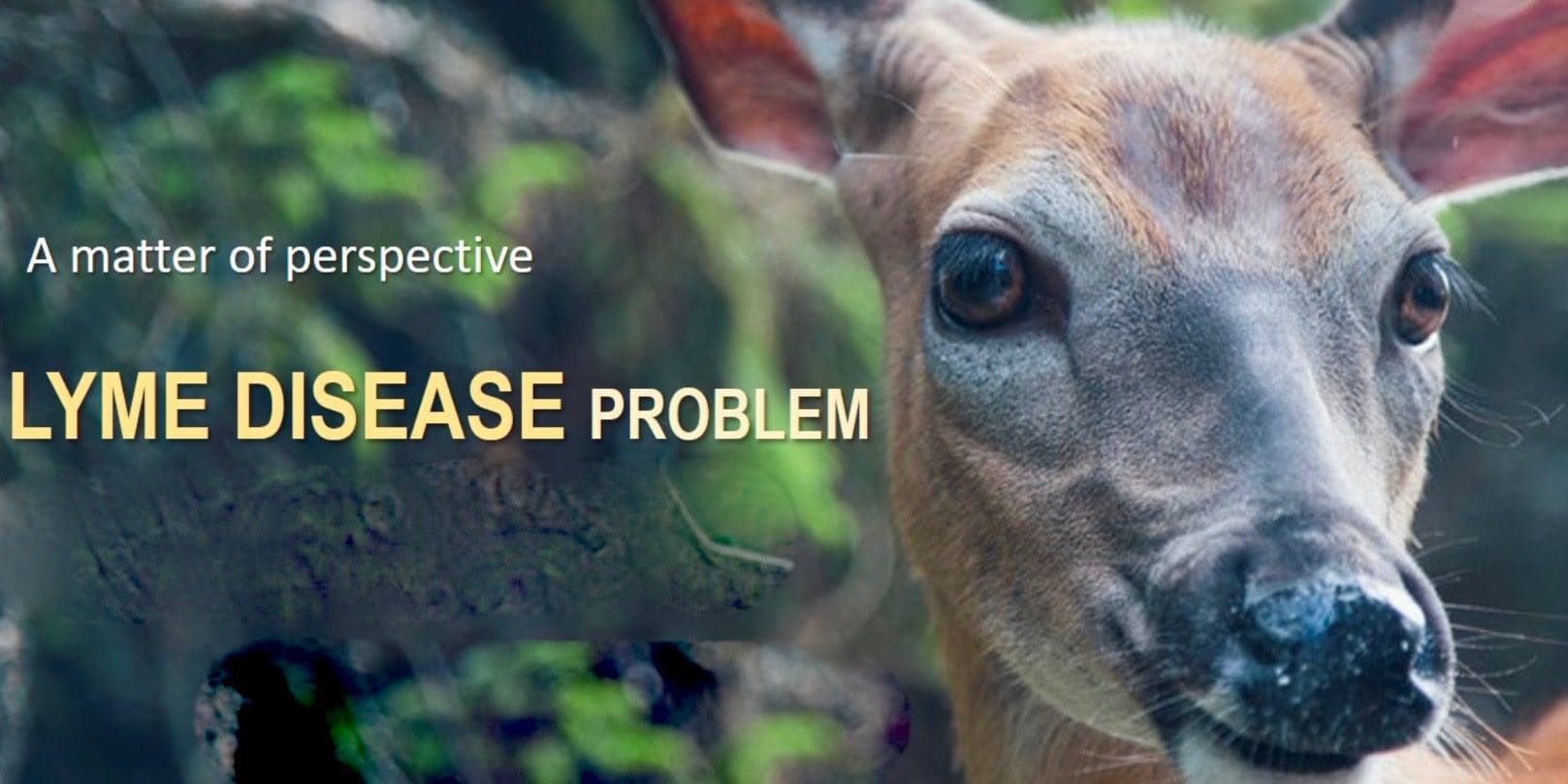Search Posts
Recent Posts
- Detailing Manhattan: Christopher Gray’s Legacy – David Brussat April 26, 2024
- Business Beat: BankNewport supports Kids’ Zone at new Save The Bay Hamilton Family Aquarium April 26, 2024
- Rhode Island Weather for April 26, 2024 – John Donnelly April 26, 2024
- GriefSPEAK: Dread. Fear. Welcome relief. – Mari Nardolillo Dias April 26, 2024
- Outdoors in RI: big animals, tiny Ticks, huge Trout, Chepachet’s Harmony Railway, 2A – Jeff Gross April 26, 2024
Categories
Subscribe!
Thanks for subscribing! Please check your email for further instructions.

Think “Tick-Smart”
The TickEncounter Resource Center promotes tick-bite protection and tickborne disease prevention by engaging, educating, and empowering people to take action. It’s located in Rhode Island on the University of Rhode Island campus in Kingston, Rhode Island. A perfect location for their work, and known worldwide for their expertise.
Their program, TickEncounter, is the outreach arm of a multi-pronged approach to “solving the tick problem” both locally, nationally, and around the globe. TickEncounter provides principle means for connecting with stake-holders, and extending tick control and tick-borne disease prevention research to end-users in an engaging way that empowers them to take appropriate action.
Their newest campaign “Be TickSmart™ encourages people to Stay Tick-Safe!” aiming to help families and others get out, exercise and enjoy nature without letting “that one little bit of nature (ticks)” enjoy them.
The TickEncounter Resource Center is affiliated with the College of Environment and Life Sciences and the Department of Computer Science and Statistics at the University of Rhode Island.
Did you know?
Did you know that in many areas of the northeast and mid-atlantic United States, you are highly likely to be bitten by a disease-carrying tick in your own backyard?
For over a decade, Narragansett has reported one of the highest incidence rates for Lyme disease in Rhode Island. Even last year when ticks were less abundant, 1 out of every 400 residents suffered a newly identified case. Many more were likely infected but remained unconfirmed. Reducing tick abundance, especially in residential areas, is the key to disease prevention, but neither the state nor any town in Rhode Island have yet to provide for any kind of tick reduction program. Until now, tick-borne disease prevention has been solely the responsibility of individuals.
What’s New?
URI’s newest facility in the fight against Lyme disease is our Tick Control Product Testing Laboratory. As part of a $900,000 Cooperative Agreement with the Centers for Disease Control, URI tick experts are evaluating minimal risk natural tick control products to provide new options for yard treatments.
Development of the “Tick Bite Patch”, a transdermal delivery system for anti-tick vaccines, is an all-Rhode Island collaboration between three well-established laboratories at the University of Rhode Island and two early-stage Rhode Island-based biotechnology companies.
The Anti-Tick Vaccine Development project stems from the observation that an acquired tick resistance (ATR) to blacklegged tick (Ixodes scapularis) blood feeding provides partial (~70%) protection from Lyme disease spirochete infection in a Guinea pig (GP) model. The project builds upon a suite of novel high-throughput antigen screening tools, developed over the past 5 year period.
Insect repellents represent one of the first lines of defense against attacks by blood feeding ticks and the diseases they can transmit. The most common products contain DEET and are applied to skin. An alternative personal-use repellent strategy is to apply repellent or toxicant products (usually permethrin) to clothing or other fabrics rather than directly on the skin. Also, information on Tick Bite Protection With Permethrin-Treated Summer Clothing is all available online at their site.
At the URI Center you will find all the resources anyone wanted to ever know about ticks, diseases they carry, research, prevention, and treatment. It is an incredible resource right here in our backyard.
Also known worldwide is “The Tick Guy” – Dr. Thomas N. Mather

Dr. Mather (a.k.a. “The Tick Guy”) came to URI in 1992 from the Harvard School of Public Health, and now serves as director of URI’s Center for Vector-Borne Disease and its TickEncounter Resource Center. His research focus is on tick ecology, area-wide tick control strategies, tick-bite protection, and tick-borne disease prevention. His research and outreach programs are diverse, including anti-tick vaccine discovery projects, evaluations of targeted tick control strategies, tick-borne disease risk prediction, as well as development of tick-bite protection decision support tools and social networking strategies for tick-borne disease prevention. TickEncounter.org has received local, national, and even international recognition. His work has attracted funding from a wide variety of sources, including the National Centers for Disease Control, the US Department of Agriculture, the National Science Foundation, the Environmental Protection Agency, the US Agency for International Development, and the National Institutes of Health.
With people staying home more this summer, be tick savvy, and learn all about what you can do to protect your family outdoors.
Golfing? Golf courses are a haven for ticks – ask your club what they do to prevent ticks – and learn about savvy ways to ward off ticks while you play.
Hiking in our beautiful state? Especially South County? Knowledge is power! Learn more…
Ticks and your pets: What are those ticks on the family dog, and are they the same as deer ticks? Are there different kinds of ticks? How to remove a tick. Learn more…
What is Powassan Disease? The Lone Star Tick? What’s new in Lyme Disease – how to talk to your doctor if you suspect you have it.
For more information: https://tickencounter.org/

